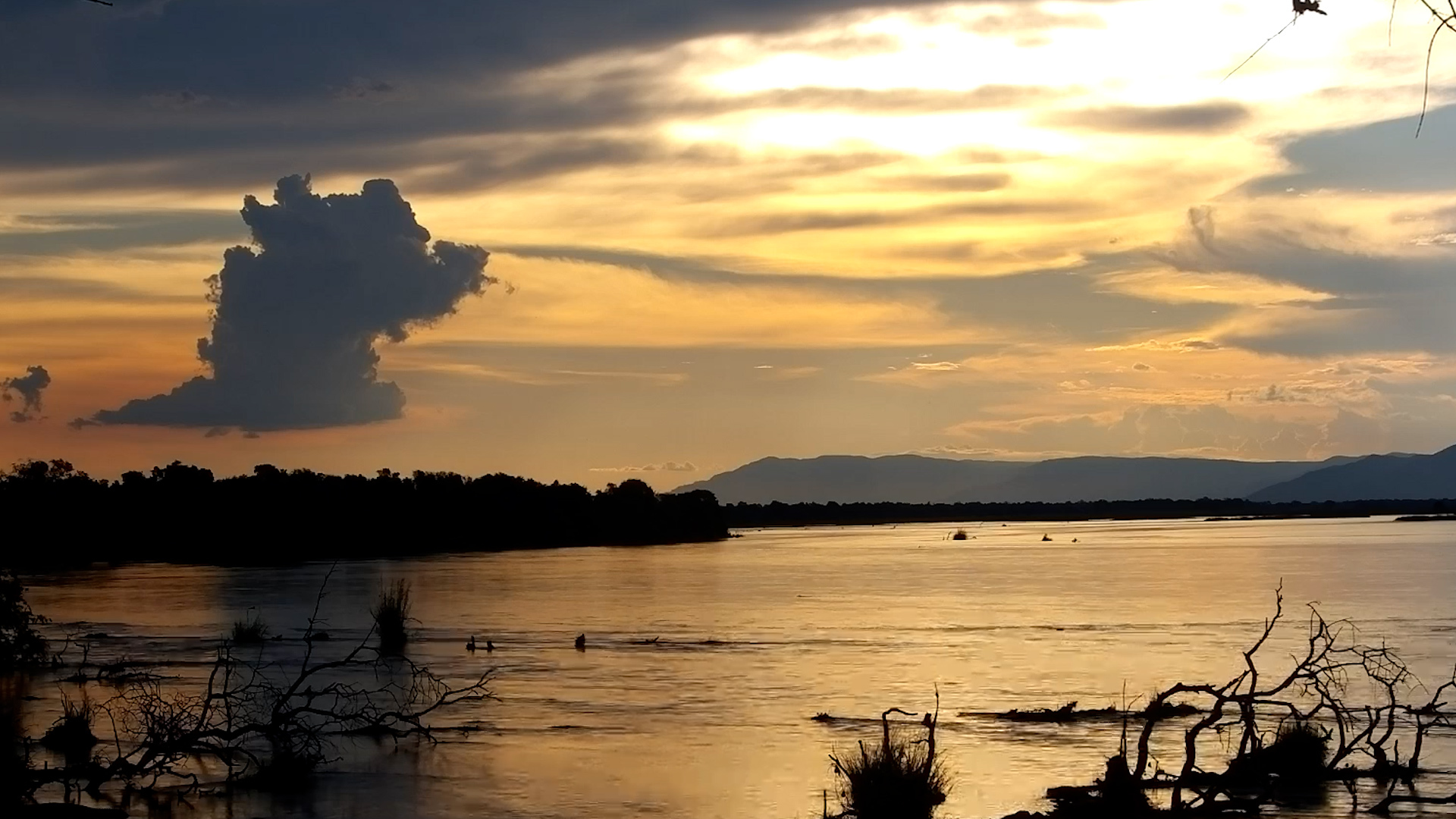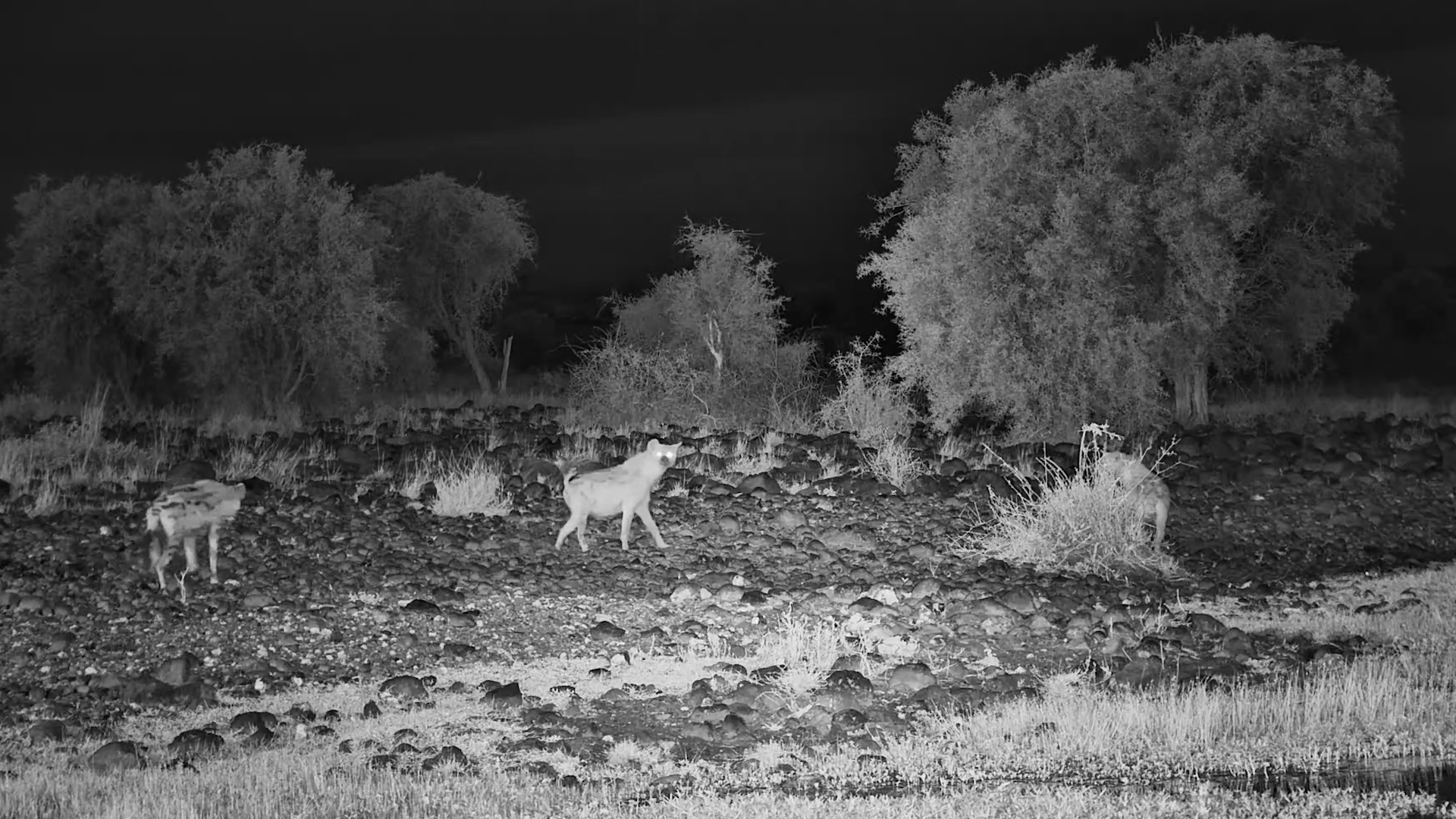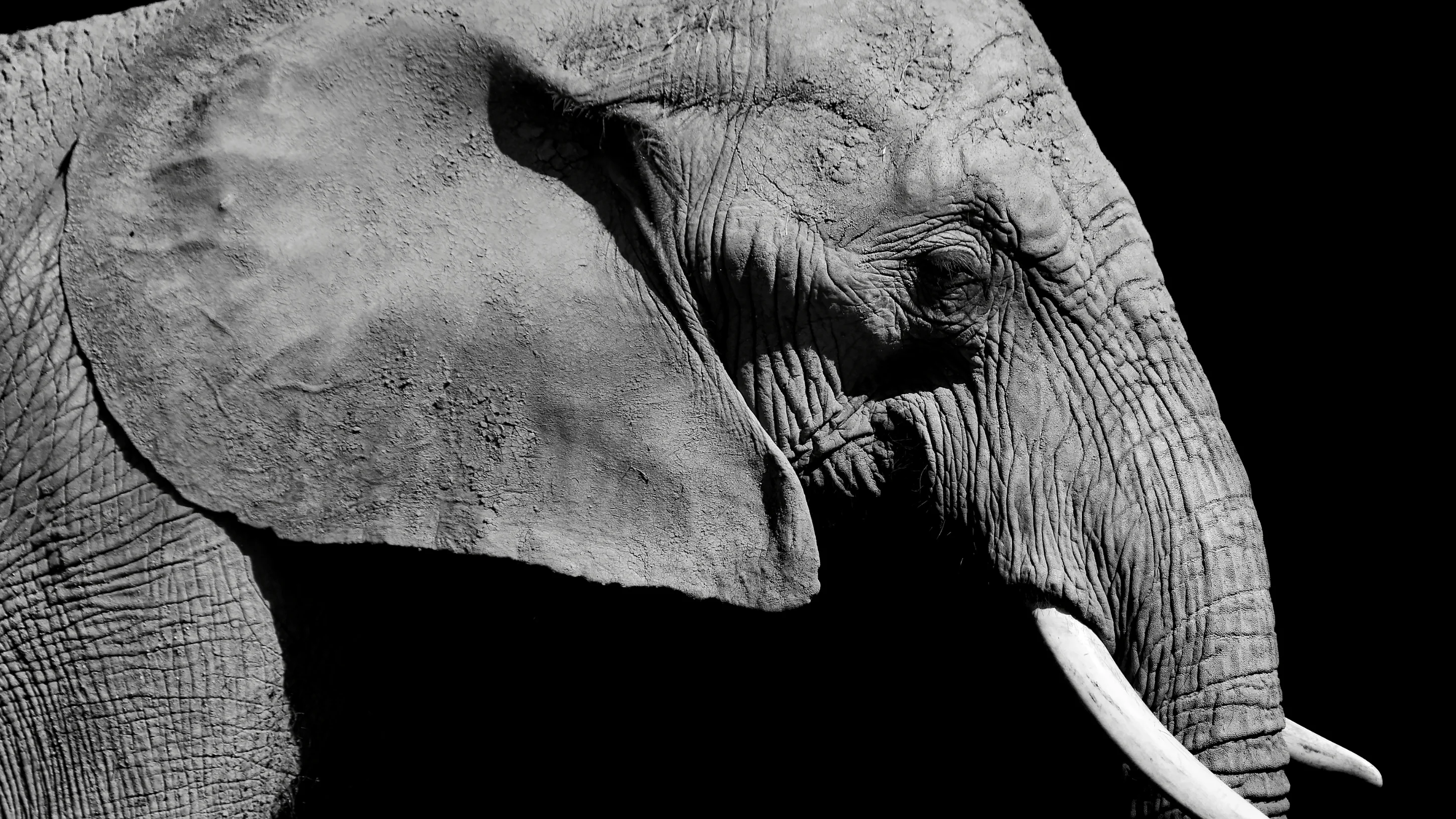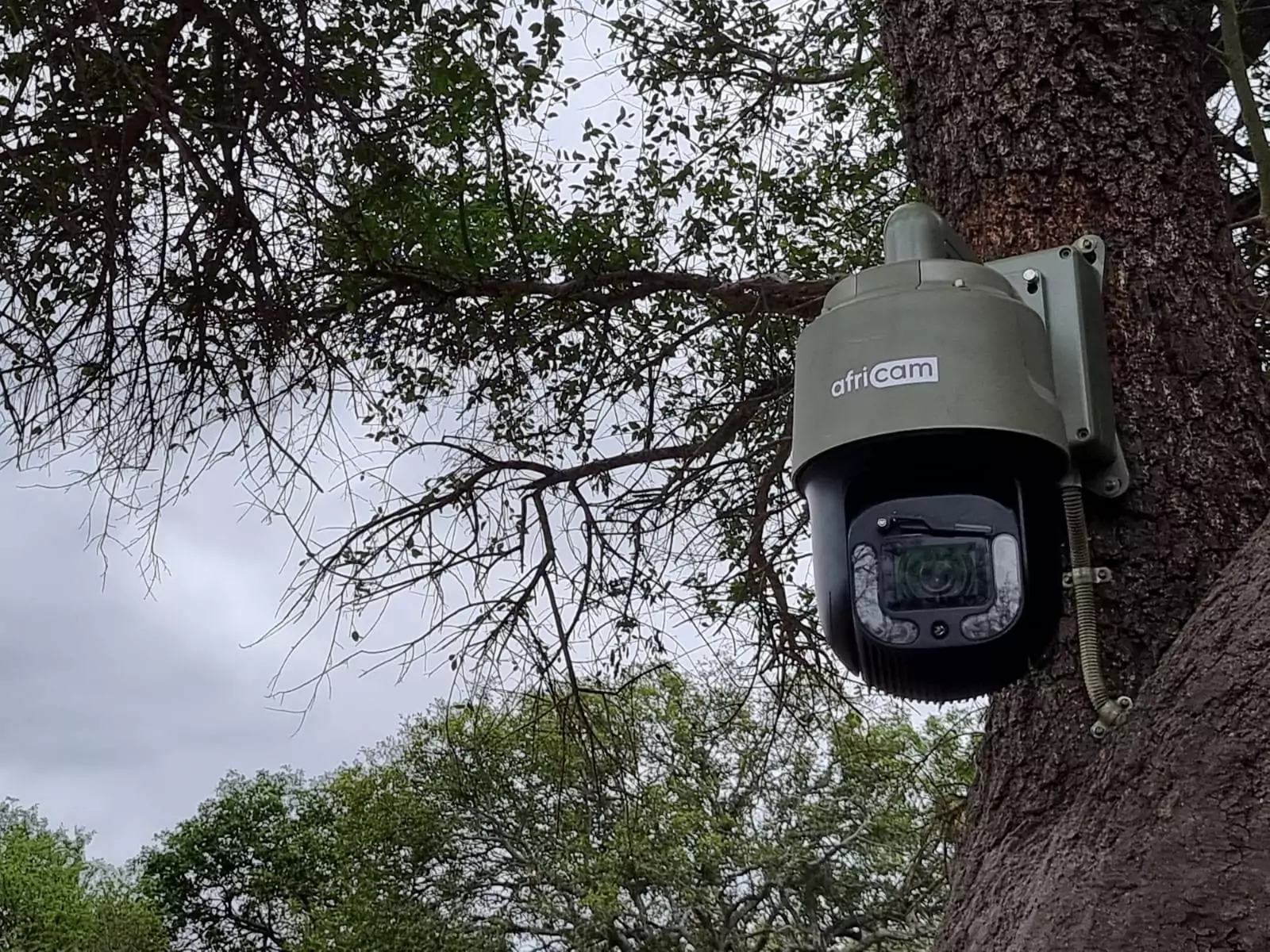Email: info@africam.com
International African Penguin Awareness Day: A Call to Action
October 10th, 2025
Posted in: Conservation
A Species on the Brink
This year, on October 11th, we unite to observe International African Penguin Awareness Day. A day to spotlight the plight of African penguins, the only penguin species native to the African continent. Once abundant along the southern coasts of South Africa and Namibia, these charismatic seabirds now face an existential crisis. As of 2024, the African penguin has officially been reclassified as Critically Endangered on the IUCN Red List. This alarming status reflects a staggering 97% decline in their population over the past century. Current estimates suggest fewer than 10,000 breeding pairs remain, with approximately 8,750 in South Africa and about 1,200 in Namibia. If current trends persist, extinction in the wild is likely to occur by 2035.
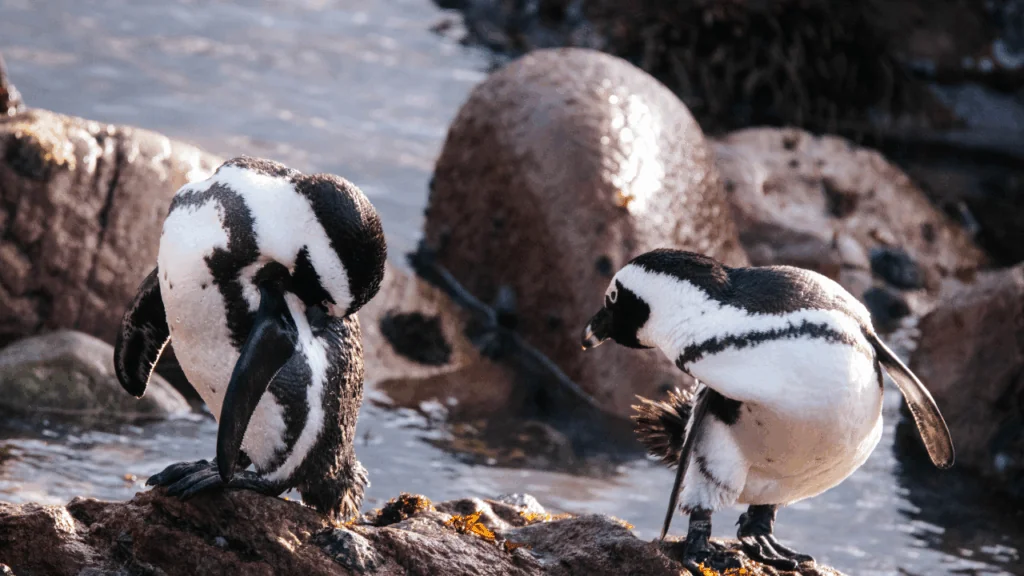
Threats to Survival
African penguins face numerous threats, with the most significant being overfishing, which has led to the depletion of their major food sources. Overfishing of the African penguin’s primary food source, including sardines and anchovies, forces them to forage farther offshore, resulting in malnutrition and decreased breeding success.
In addition, oil spills, both historical and ongoing, continue to jeopardize their health and habitat. Climate change further exacerbates these challenges, with increasing storm frequency and intensity along the Western Cape coast leading to the abandonment of eggs and chicks, prompting organizations to intensify rescue and rehabilitation efforts.
Ecological Importance
African penguins play a vital role in maintaining the health and balance of the coastal ecosystem. By foraging at sea and returning to their breeding colonies on land, they act as natural nutrient transporters, bringing essential minerals and organic matter from the ocean to coastal environments. These nutrients enrich the soil, supporting plant growth and providing sustenance for a wide range of terrestrial species, from invertebrates to small mammals and birds.
In the ocean, African penguins also play an important role in supporting other marine life. When hunting, they often corral schools of fish into tight groups, driving them toward the surface. This behaviour not only improves their own hunting success but also benefits other seabirds, such as gulls and cormorants, which are unable to dive as deeply. By pushing fish closer to the surface, penguins make them accessible to these surface-feeding birds, helping sustain a diverse community of marine predators.
Furthermore, African penguins help regulate populations of their prey, primarily small fish, which are essential components of the marine food web. By keeping these fish populations in check, penguins contribute to the stability of the wider marine ecosystem, supporting not only other seabirds and marine predators but also the health of the fisheries on which humans depend. Therefore, their presence is not just a charming spectacle for observers, it is a cornerstone of ecological balance along southern Africa’s coastlines.
Africam: Bringing Penguins to Your Screen
In recognition of International African Penguin Awareness Day, Africam offers a unique opportunity to observe these remarkable birds in their natural habitat. Through Africam’s livestreams, viewers can watch penguins at play, parenting, and navigating the challenges of their environment. This immersive experience not only educates but also fosters a deeper connection to the species and the urgent need for conservation efforts. Watch the Stony Point livestream here, and catch a glimpse of these resilient little penguins.
To further support African penguins and gain a deeper understanding of their current challenges, watch our exclusive African penguin Wild Moments episode. This offers an intimate look at the daily lives of these remarkable birds and sheds light on the threats they face in the wild.
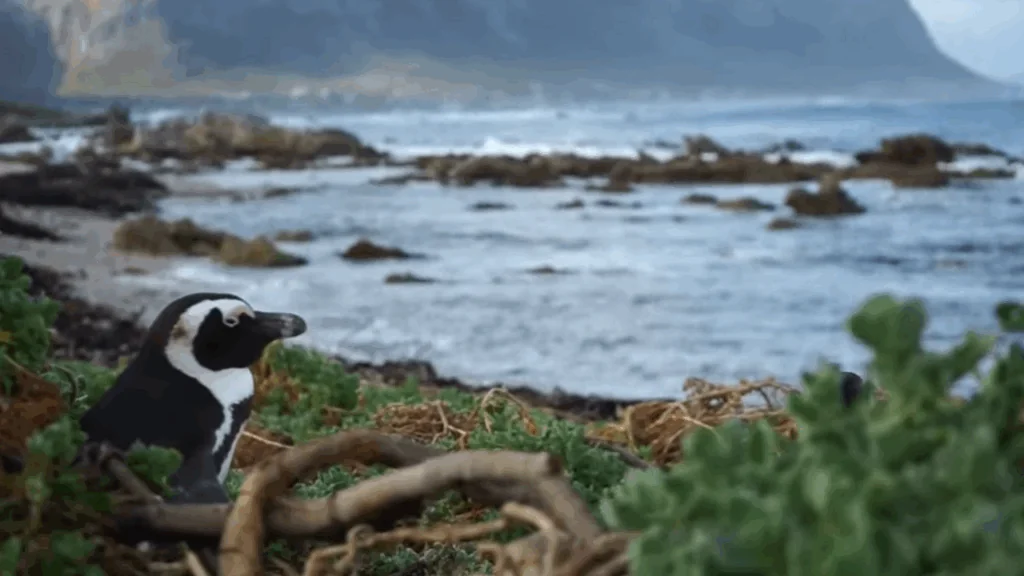
How You Can Help
Everyone can play a part in helping African penguins survive. Supporting conservation organisations like SANCCOB, BirdLife South Africa, and Cape Nature is crucial, as these groups are actively involved in African penguin rescue, rehabilitation, and habitat protection.
Advocating for policy changes, such as the enforcement of no-fishing zones around penguin breeding colonies, is essential to ensure these birds have safe and reliable foraging grounds. One inspiring way the public can get involved is through events like the annual African Penguin Waddle in the Cape Town area, which raises awareness about the threats penguins face and supports conservation initiatives.
Furthermore, raising awareness by sharing information about the current status of the African penguin can amplify the message, while participating in virtual experiences, such as Africam’s live streams, connects people directly to African penguins and their world.
Food for Thought
The survival of the African penguin hinges heavily on collective action. By observing International African Penguin Awareness Day, we not only acknowledge the challenges these seabirds face but also commit to being part of the solution. Together, we can ensure that future generations will continue to marvel at the sight of these unique seabirds along Africa’s southern shores.

